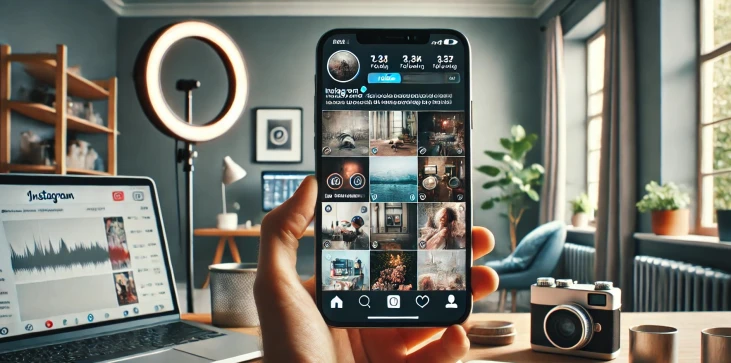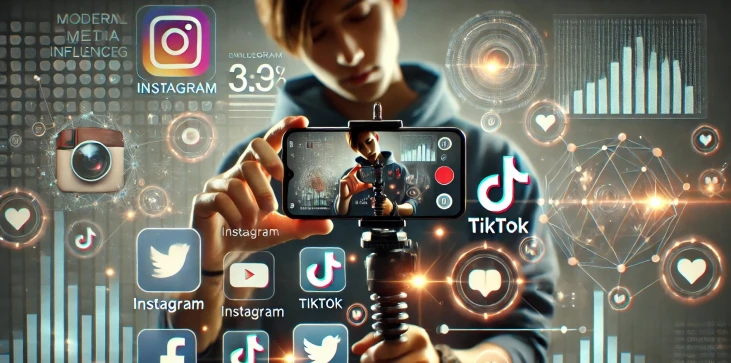
In the digital era, influencers have become an essential part of marketing strategies. From Instagram to TikTok, their ability to reach niche audiences and cultivate trust makes them an invaluable asset for businesses of all sizes. The influencer role has shifted from mere product endorsements to building authentic relationships between brands and consumers. This shift towards influencer-driven marketing reflects how social media users increasingly rely on trusted voices over traditional advertisements. Whether it's promoting a new product launch or raising brand awareness, influencers are now central to crafting marketing campaigns that resonate with a digitally savvy audience. In this article, we will explore the evolving influencer role, its impact on marketing, and how brands can leverage these partnerships effectively.
The influencer role in marketing has grown exponentially, thanks to the proliferation of social media platforms like Instagram, Facebook, and TikTok. Initially, influencers were celebrities or public figures, but the democratization of the internet has enabled everyday individuals to build their own followings. Brands have recognized the value in working with influencers who can authentically promote their products to a specific demographic.
Micro-influencers, who typically have smaller yet highly engaged audiences, are particularly valuable to companies looking to target niche markets. Their intimate connection with their followers often results in higher engagement and conversion rates compared to traditional advertising methods.
The key strength of the influencer role lies in the authenticity that influencers bring to their partnerships with brands. Unlike traditional ads that feel impersonal, influencers create content that feels natural and aligned with their personal brand, making their promotions more relatable and trustworthy.
Authenticity is critical because consumers are more likely to trust recommendations from people they follow, rather than a company. Influencers can humanize brands, fostering loyalty and encouraging followers to engage with products in a way that traditional media simply cannot.
Beyond product promotion, the influencer role has expanded into content creation and storytelling. Influencers are not just marketers; they are also creators who bring creativity and originality to brand collaborations. Through engaging stories, behind-the-scenes looks, and lifestyle content, they seamlessly integrate products into their lives, making the content feel organic.
Influencers are also adept at using various media formats like videos, Instagram stories, and live streams to capture attention and maintain engagement. This blend of marketing with content creation helps keep audiences entertained while subtly promoting the brand’s message.
The power of the influencer role is undeniable when it comes to shaping consumer behavior. Influencers have the ability to create trends, introduce new products, and even spark viral challenges that directly affect purchasing decisions. By leveraging the trust that influencers have built with their audience, brands can tap into a stream of potential buyers who are more likely to convert.
Influencers also play a critical role in the modern-day decision-making process. Many consumers now look to influencers for reviews and opinions before making a purchase, particularly for lifestyle, fashion, and tech products. This level of influence underscores why brands must carefully select influencers who align with their values and marketing goals.
The influencer role in marketing is no longer just an emerging trend—it's a fundamental aspect of digital marketing strategies across industries. As consumers continue to favor recommendations from trusted social media figures over traditional advertisements, the demand for influencers will only increase. For brands, this means not only identifying influencers who resonate with their target audience but also cultivating genuine relationships that emphasize authenticity and value. Influencers are more than just brand ambassadors; they are storytellers and trendsetters who drive consumer behavior and create meaningful connections between brands and audiences.

Influencers are seen as authentic and relatable, unlike traditional ads that can often feel forced or overly commercial. Followers trust influencers because they offer personalized recommendations and content that aligns with their interests, making them more effective at driving engagement and conversions.
Brands select influencers based on several factors, including audience demographics, engagement rates, and the influencer's personal brand alignment with the company’s values. Micro-influencers, in particular, are often chosen for niche campaigns due to their highly engaged follower base.
One of the main challenges is ensuring that the collaboration remains authentic. If the influencer’s promotion feels forced or inauthentic, it can lead to negative feedback from their audience. Additionally, tracking the ROI (Return on Investment) from influencer campaigns can sometimes be difficult, making it essential to use clear metrics and objectives from the start.